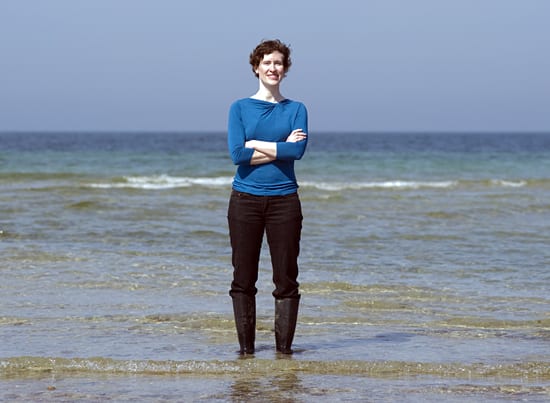Image
Changing chemistry
May 3, 2010Intensive burning of fossil fuels and deforestation over the last two centuries have increased carbon dioxide (CO2) levels in the atmosphere by almost 40 percent. The oceans absorb about one-third of all human-generated carbon emissions, but the buildup of CO2 in the ocean is pushing surface waters toward more acidic conditions. This “ocean acidification” creates a corrosive environment for marine organisms such as corals, marine plankton, and shellfish that build carbonate shells or skeletons. “The waters are becoming less and less welcoming for shelled organisms,” says Sarah Cooley (pictured), a postdoctoral researcher in the Marine Chemistry and Geochemistry Department. Cooley and colleagues are working to understand the possible socioeconomic threats posed by these changes in ocean chemistry.
(Photo by Tom Kleindinst, Woods Hole Oceanographic Institution)
Image and Visual Licensing
WHOI copyright digital assets (stills and video) contained on this website can be licensed for non-commercial use upon request and approval. Please contact WHOI Digital Assets at images@whoi.edu or (508) 289-2647.

